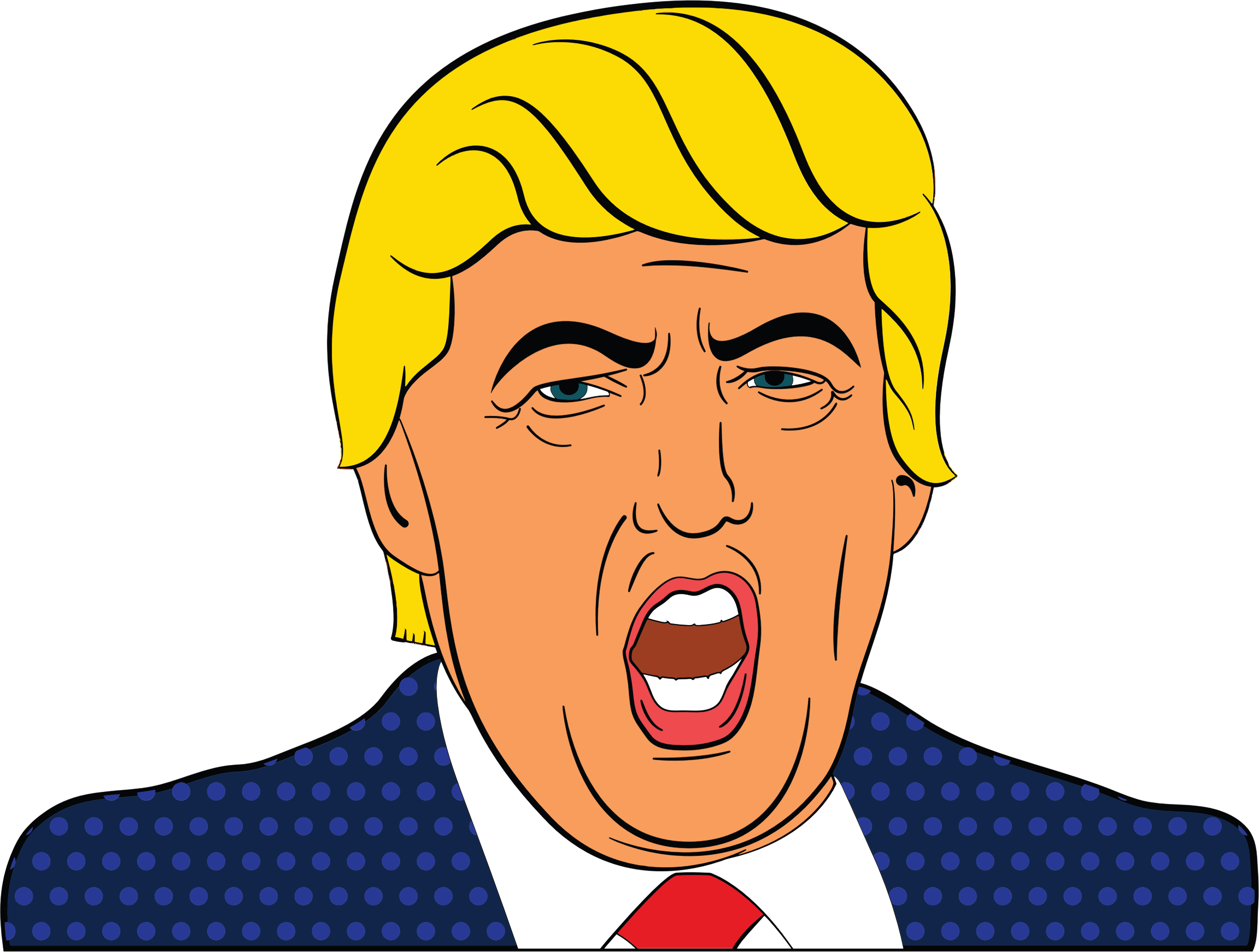There’s much to be said for the political value of clownishness, buffoonery, or just sheer overt stupidity. At the least, they can defuse criticism and distract from more serious, ominous subjects.
When I studied in the U.S. during the Vietnam years, there was a tense confrontation on campus between pro- and anti-war sides. A pro-war prof rose and began jabbering about statistical and other benefits of making war. He was like a parody of academia. Anger evaporated into titters and heckling, but a student from Germany broke in to tell how, when her generation confronted their elders over their support for Hitler, they were often met with similar performances; it was a calculated way to deflect difficult questions.
British PM Boris Johnson is a brilliant practitioner of this. He may be a genuine dolt, but he’s also a master of dolt mode. He knows what he’s doing when he bowls over a toddler playing rugby, or gets stuck on a zip line. When cartoonists draw him as a clown they’re essentially copying what he’s made of himself. Just look at the haircut—it’s hard to maintain rage or attribute malice. And he benefits from the tradition of lovable Brit eccentrics.
At the moment, he seems outflanked by his own lies about a boozy party at 10 Downing Street, just minutes after ordering the rest of the country into lockdown. There’s not much buffoonery to resort to. In question period this week, he apologized and hung his head—an unusual posture. On the other hand, when you regard the Labour leader scolding him—sanctimonious, humourless (Sir!) Keir Starmer—I mean, who’d you prefer being seated beside on a long flight?
Not to mention pundits who tediously explain how “people,” i.e., those less sophisticated than them, draw the line at hypocrisy. BoJo may yet find space to pull off another zip line highlight.
Donald Trump is a more complex case. He’s certainly a joke, but unlike Boris, he doesn’t seem in on it. Yet the orange fright wig (his own hair prop) serves the same end. Like Boris, he diverts rage to ridicule. He may hate being ridiculed; it’s not the American way. But on some gut level—which is his wheelhouse—he knows being ridiculous works: like recommending drinking bleach to beat COVID. It was better than being asked about everything he wasn’t doing to save lives.
Maybe the best way to understand him is as if he’s playing the clown, like Boris—because that’s how it works out, even if it’s not conspicuously conscious.
This also bears on the question: what happened to political humour, especially in the U.S.? It seemed so strong there during the Bush/Obama years, then dropped off a cliff under Trump. Could the decline be because politicians quite brilliantly learned to use mockery on themselves before others could, as if they actually were what they were lampooned for, albeit in a wily way? That’s the essence of acting: to find something real in yourself to base the fakery on.
So this isn’t, despite the common trope, because reality got so absurd that comedy had no way to ridiculize it any more. It’s rather because the players didn’t stand still to be made fun of. They mocked themselves and took over the game—wittingly in Boris’s case, less so in Trump’s. For that matter, when you look at gloomy comics whining about how hard it is to be funny when reality is outrunning them, which side do you really feel more sympathy for?
These clowns found a lifeline, and it’s hard to blame them for using it. When Trump gets serious, as he did this week denouncing leaders who won’t support vaccines, it’s only when he fears someone’s about to steal his limelight, like Florida Gov. Ron DeSantis, who may run against him for the GOP nomination. Suddenly the ultimate goof got sombre and portentous, even oh-so-slightly progressive. He must be feeling truly desperate.
This column originally appeared in the Toronto Star.




